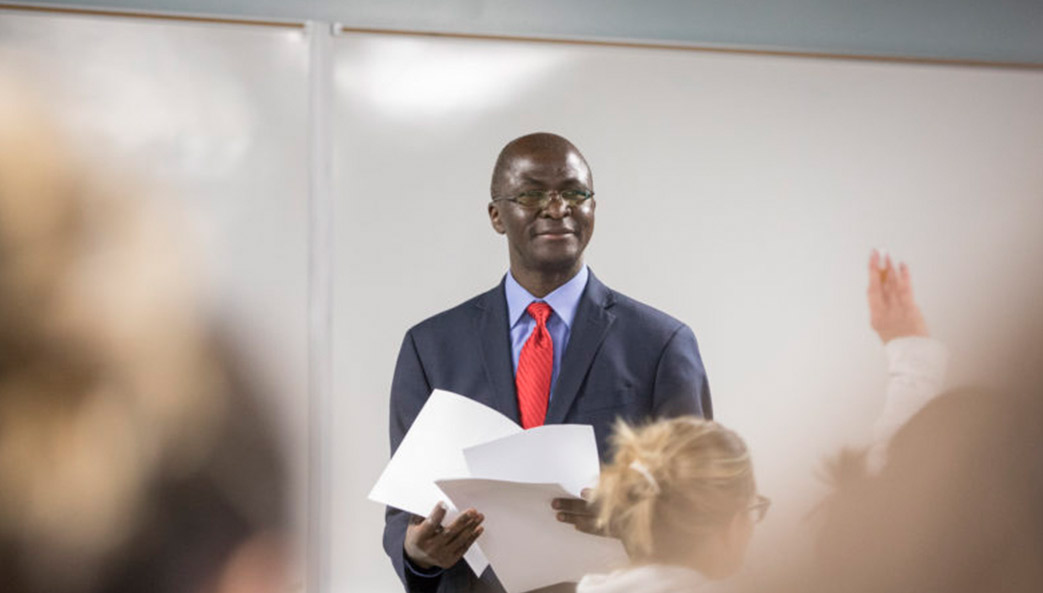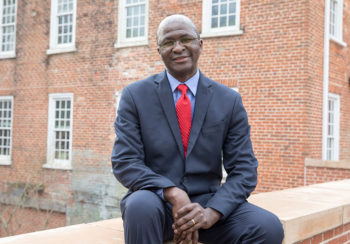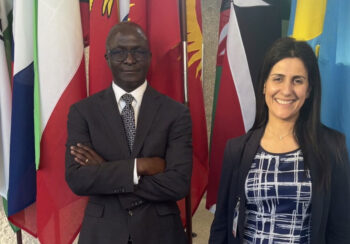The University of Georgia Research Foundation received a $4 million award from the U.S. Department of State to reduce the prevalence of human trafficking in targeted communities of West Africa. Researchers at UGA formed an international consortium, the Africa Programming and Research Initiative to End Slavery (APRIES), which will be responsible for the implementation of the award. The project is overseen by the State Department’s Office to Combat and Monitor Trafficking in Persons and is part of its Program to End Modern Slavery.
Human trafficking, also known as modern slavery, is a persistent, worldwide problem hampered by lack of data for intervention efforts. Over the next five years, APRIES will collect data on the prevalence of human trafficking in parts of Sierra Leone and Guinea. The baseline research will support programs that seek to achieve a measurable reduction of modern slavery. If successful, the program’s methodology could serve as a model for similar efforts elsewhere.
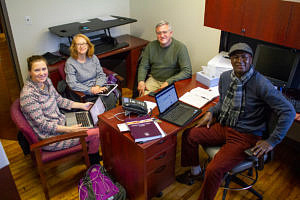
“There has never been a systematic, research-based multinational effort as extensive as this to tackle the problem of modern slavery in Africa,” said David Okech, an associate professor in the UGA School of Social Work and the project’s director and principal investigator. “This is a challenge and also a great opportunity to execute truly transformational programs.”
According to the International Labour Organization, an estimated 25 million people worldwide are victims of human trafficking. That figure is likely an underestimate, said APRIES researchers.
Statistics are acutely needed in Africa. “There are limited data in Guinea and Sierra Leone on the prevalence of modern slavery,” said Jody Clay-Warner, Josiah Meigs Professor of Sociology in the Franklin College of Arts and Sciences and an associate director of the project. “The award provides us the opportunity, at a minimum, to fill this gaping hole to inform policy and programming.”
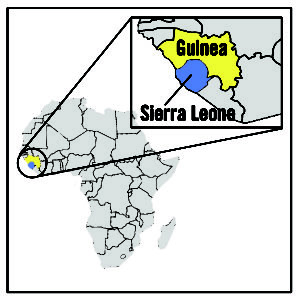
The APRIES team will work with ResilientAfrica Network, a USAID-funded partnership of 20 African universities based at Makerere University in Uganda, to collect, analyze and establish robust baseline data on the prevalence, impact and service gaps of human trafficking in certain sectors in Sierra Leone and Guinea. Using a collective impact approach, local implementing partners will amplify the effort by using the findings of the research in anti-slavery operations and programs that help trafficking survivors. Implementing partners will be openly and competitively selected on their ability to execute well-designed, measurable programs. The project will not replicate or create overlaps with existing anti-trafficking efforts.
“With a clearer picture of the types, prevalence and sectors of modern slavery, we expect to achieve a marked reduction of human trafficking in the areas we document and a significant increase in the number of victims served,” said Alex Balch, professor of political science at the University of Liverpool and an associate director of the project.
APRIES members have a proven record of anti-trafficking research in sub-Saharan Africa, including the development of a model for the reintegration of female survivors of human trafficking; increasing transparency in labor supply chains in cocoa cultivation and garment manufacturing; and reintegrating former child soldiers in post-conflict zones. These projects were made possible by the UGA President’s Interdisciplinary Seed Grant Program, the UGA Office of International Education, the Owens Institute for Behavioral Research, the National Institutes of Health, the National Science Foundation, and the United Kingdom’s Economic and Social Research Council.
In addition to Okech and Clay-Warner, University of Georgia team members include assistant professor Tamora Callands and professor Nathan B. Hansen in the department of health promotion and behavior, College of Public Health, and Program Assistant Trasie Topple, Ph.D., and Program Manager Lydia Aletraris, Ph.D.
For more information on the Office to Monitor and Combat Trafficking in Persons, visit https://www.state.gov/j/tip/.



